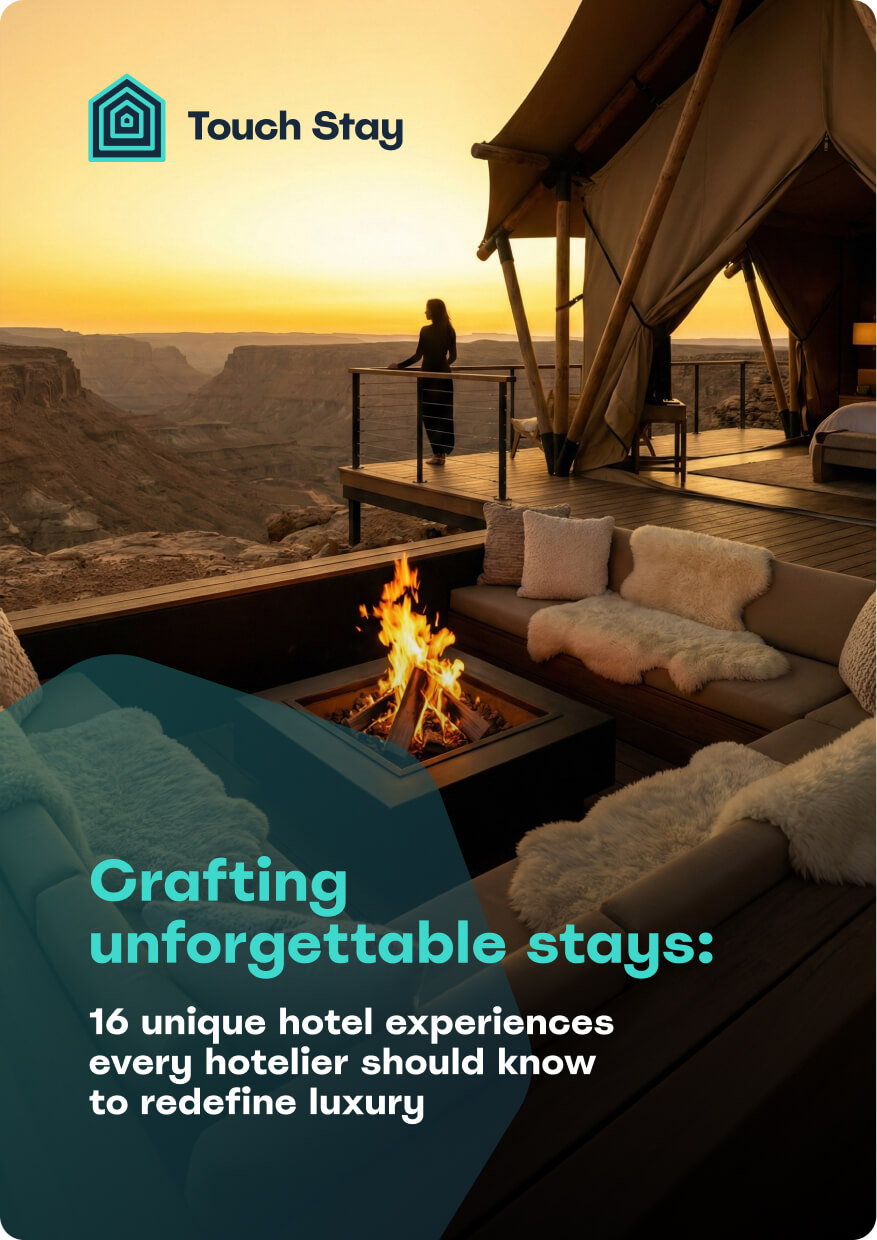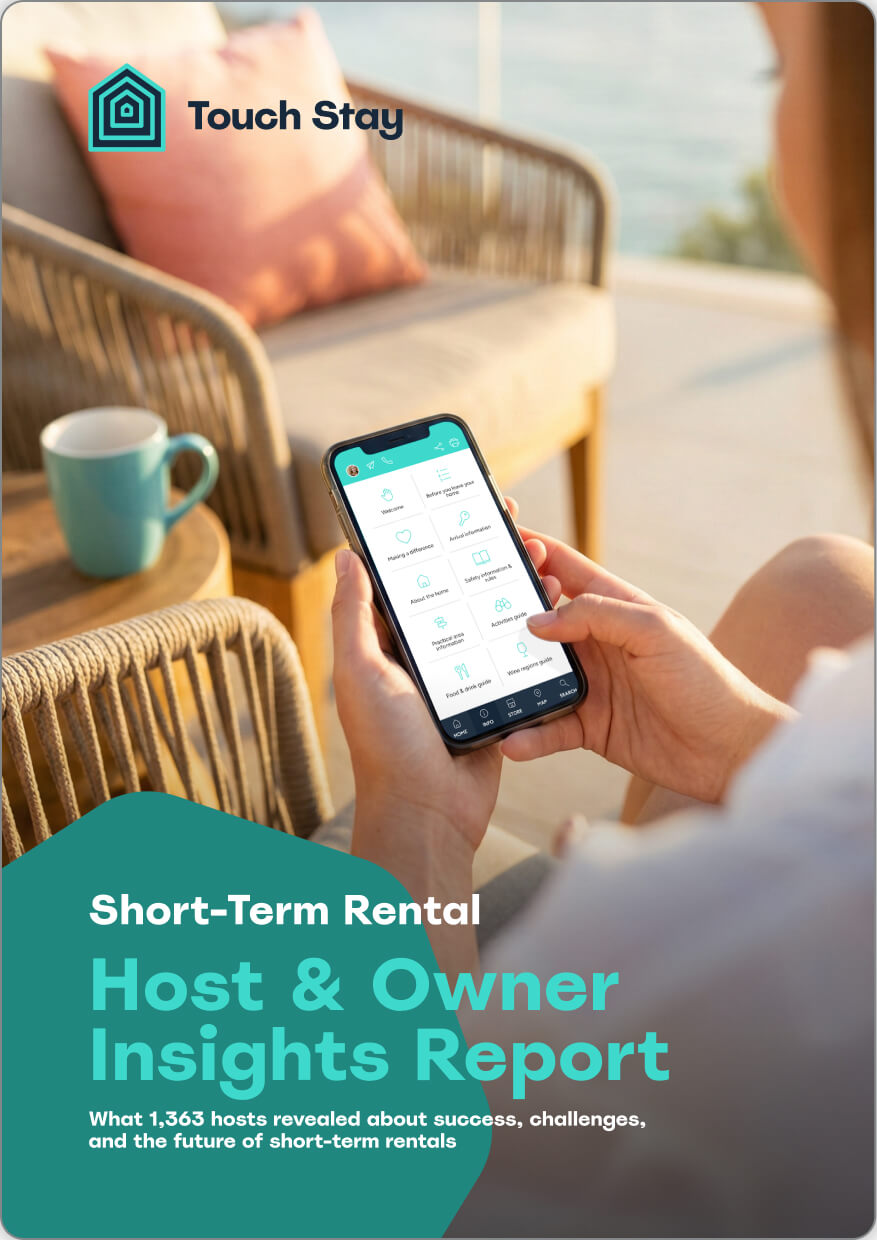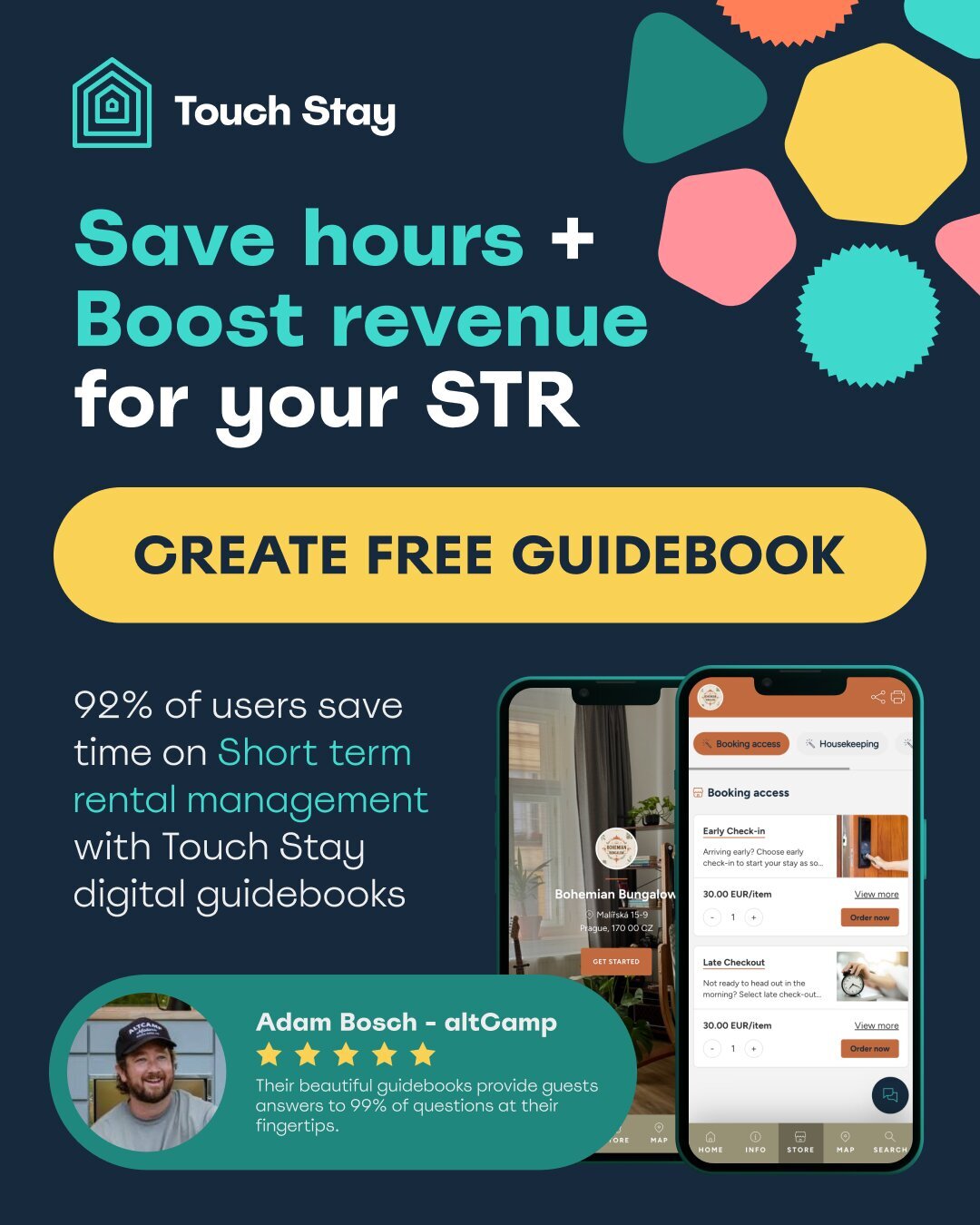Starting an Airbnb can be a rewarding venture, whether renting out a cozy room or an entire property. Our guide will walk you through the key steps to get your Airbnb business off the ground, running smoothly, and on your way to Superhost status.
Let's dive into the essentials you need to know to launch a successful Airbnb:
- Research prices and competition
- Research laws and regulations
- Create a legal entity
- Prep, furnish, and set a price
- List your property
How to start an Airbnb in 5 steps
Only 5 steps?
Well, yes and no – get your pen and notebook ready, there’s a lot of research ahead!
1. Research prices and competition

First things first: do your homework.
Check out other listings in your area to understand the market. Look at properties similar to yours to see what they offer, and at what price. This will help you set competitive rates and find ways to make your property stand out amongst the crowd.
- Local listings: Browse Airbnb for properties in your neighborhood. Take notes on their amenities, pricing, and booking rates.
- Competitive analysis: Identify top-performing (and low-performing!) listings and analyze their reviews to understand what guests appreciate, and what they don’t.
- Seasonal trends: Business ebbs and flows pretty severely in the travel world. Pay attention to how prices and occupancy rates fluctuate throughout the year.
Gathering this data will help you get a clear view of what the market is like in your area, and will help you greatly in the long run.
2. Research laws and regulations in your area
Each area has different regulations for short-term rentals. Luckily, Airbnb has a great list of regulations for local US areas here.
Before you start welcoming guests, you need to ensure you’re on the right side of the law.
However, to avoid any missteps from outdated information, check with the appropriate governing bodies on these topics:
- Local permits: Check if your city or municipality requires specific permits for operating a short-term rental. Some places have strict regulations and failure to comply can result in hefty fines.
- Zoning laws: Confirm that your property is in an area where short-term rentals are allowed. Some residential zones prohibit such rentals or have restrictions on the number of days you can rent out your property.
- Safety and health regulations: Ensure your property meets all local safety and health standards. This might include smoke detectors, carbon monoxide detectors, fire extinguishers, and sometimes even an inspection by local authorities.
- Homeowner Association (HOA) rules: If your property is part of an HOA, review their rules regarding short-term rentals. Some HOAs ban or restrict Airbnb-type rentals.
- Insurance requirements: Regular homeowner’s insurance might not cover short-term rental activities. Look into short-term rental insurance or additions to your existing policy to cover any potential liabilities.
Knowing the laws in and out is a necessary part of this process, so cross your T’s and dot your I’s thoroughly here.
3. Create a legal entity
Protecting your personal assets is crucial when starting an Airbnb business. Forming a legal entity, like an LLC, offers liability protection and can provide tax benefits. The specific tax benefits can vary by state, for example, forming an LLC in California is subject to an $800 annual franchise tax, while Arizona LLCs have much lower ongoing state taxes.
Here’s how to do it:
- Choose a business structure: Common choices include LLCs, sole proprietorships, and corporations. LLCs are popular due to their flexibility and protection, but each case is unique.
- Register your business: File the necessary paperwork with your state’s business registration office. This usually involves a fee and some basic information about your business.
- Get an EIN: An Employer Identification Number (EIN) is needed for tax purposes. You can obtain one from the IRS website. Note that not all LLCs need an EIN, but if you plan on hiring any staff or property managers, you’ll need one.
- Open a business bank account: Keep your business finances separate from your personal finances to simplify accounting and protect your assets at your preferred bank.
- Consult a professional: When in doubt, a lawyer or accountant can provide valuable advice and guide you through these processes to keep your new business safe and secure.
Setting up a legal entity might seem like a hassle, but it’s a vital step in protecting your investment and ensuring long-term success.
4. Prepare and furnish your Airbnb + set a price

Now we get to the exciting part – turning a house into someone’s temporary home! Making your Airbnb inviting and comfortable is key to attracting guests.
These are some ways to get started:
- Invest in quality furnishings: While you don’t need Egyptian cotton sheets or the finest Crate & Barrel wicker baskets, comfortable beds, stylish furniture, and good lighting can make a big difference. Think about what you’d want in a home away from home that still fits into your budget, and won’t break your heart if they get damaged.
- Essential amenities: Be sure to provide things like fresh linens, toiletries like hand soap, kitchen basics, and Wi-Fi. Small extra touches like coffee, tea, and local guides can help take the guest experience from ‘okay’ to ‘wow!’.
- Safety first: Install smoke detectors, carbon monoxide detectors, and fire extinguishers. Consider adding a first-aid kit and clear emergency instructions.
- Create a welcoming space: Personal touches like local artwork, cozy throws, a collection of books, and a well-maintained garden can make your property feel truly special.
- Set a competitive price: Based on your research, set a price that reflects the value you offer. Be ready to adjust it seasonally or based on demand.
A well-prepared property not only attracts guests but also encourages positive reviews and repeat bookings. Being attentive to your guests and providing a comfy home is a great way to become someone’s favorite vacation spot!
Tip: Take a look at companies made specifically for hosts like you – people who need to furnish an entire home in a hurry! Try Fülhaus for small budgets, or Summer for impeccable style.
5. List your property or get a co-host
Now it’s time to get your property listed and ready for bookings. Follow these steps and get ready to officially open your new business!
- Create an engaging listing: Write a compelling description that highlights your property’s unique features. Use high-quality photos to showcase your space, but make sure not to be misleading.
- Highlight amenities: Clearly list all the amenities you offer, from Wi-Fi to kitchen essentials. Mention any special features like a hot tub, or proximity to local attractions.
- Set house rules: Establish clear house rules to set guest expectations. Include details about check-in/check-out times, smoking policies, guest policies, and pet restrictions.
- Use dynamic pricing: Consider using dynamic pricing tools that adjust your rates based on demand and competition. This can help you maximize revenue and stay in competition with other properties in the area.
- Hire a co-host: If managing the property feels overwhelming, consider hiring a co-host. They can help with guest communication, cleaning, and maintenance, ensuring a smooth operation and less burden on you.
Tip: Your co-hosts don’t have to be your friends or neighbors! Many agencies on the market can expertly manage your property for a fee. Take a look at the best property management by state, or take advantage of Airbnb’s co-host feature.
Bonus step 6: Create a TouchStay guide
There’s another way you can bring an air of professionalism and luxury to your new Airbnb listing, and that’s with a curated guide from TouchStay
With TouchStay, you can consolidate your house rules, local attractions, and much more in one visually stunning digital space, easily accessible from any mobile device.
Want to get started? Making your first guide is easy, so start your free trial today!
How much does it cost to start an Airbnb?
The average cost for setting up an Airbnb can range from $3,000 to $6,000, but it can go up to $30,000 depending on various factors.
Unfortunately, it’s not all just income. There are plenty of expenses to incur along the way. Starting an Airbnb requires some initial investment, which can vary widely based on location, property size, and the extent of renovations needed.
Common startup costs:
- Property acquisition or lease
- Renovations and furnishings
- Licenses and permits
- Insurance
- Utilities and services
- Cleaning and maintenance
Again, costs vary significantly depending on your area, so do your research before jumping in.
What are the average Airbnb profits?
Running an Airbnb can be a profitable venture, but earnings will vary greatly based on many factors including location, property type, and occupancy rates.
- On average, Airbnb hosts earn around $9,600 annually.
- A typical U.S. host brings in about $14,000 each year through Airbnb.
- For entire units accommodating up to four guests, hosts can earn an average of $309 per night.
- Nationwide, hosts earn approximately $122 per night for a private room that accommodates up to two guests.
- As of October 2020, Airbnb hosts have collectively earned an impressive $110 billion.
Please note that these are averages and actual earnings may be more or less than these figures. Also, keep in mind that these figures are subject to change as the platform continues to evolve.
By carefully managing your property and keeping an eye on market trends, you can optimize your Airbnb’s profitability and enjoy a steady stream of income.
Airbnb taxes
Understanding your tax obligations is crucial for running a compliant and profitable Airbnb business and staying in good standing in the watchful eyes of tax authorities.
- Income taxes: Airbnb income is subject to federal and state income taxes. You’ll need to report your Airbnb earnings on your tax return, typically on Schedule E for rental income, or Schedule C if you’re treating it as a business. If you provide substantial services, such as meals or tours, you might need to file as a business, which includes paying self-employment taxes.
- Occupancy taxes: Many cities and states require short-term rental hosts to collect and remit local occupancy taxes, also known as lodging or tourist taxes. Airbnb often collects these taxes on behalf of hosts, but it’s important to verify if this applies in your area.
- Self-employment taxes: If your Airbnb operation is considered a business, you may need to pay self-employment taxes, which cover Social Security and Medicare (if you’re in the U.S) contributions. This applies if you provide additional services beyond just renting out the space.
- Deductions: You can deduct expenses related to running your Airbnb, such as maintenance, supplies, insurance, and a portion of your mortgage or rent. Keeping thorough records of all expenses is essential for maximizing your deductions and minimizing your taxable income.
For more detailed information, you should refer to resources from the IRS or consult a tax professional to make sure you're meeting all your tax responsibilities and getting all the appropriate deductions.
Conclusion
Starting an Airbnb can be both rewarding and profitable, offering flexibility and the potential for high returns.
With careful planning and dedication, you can turn your property into a thriving short-term rental that attracts guests and generates steady income.
Frequently asked questions
Is it hard to start an Airbnb?
Starting an Airbnb involves several steps, but with proper planning and preparation, it can be a manageable process.
Key challenges include understanding and complying with local regulations, making an initial investment in the property, and managing day-to-day operations
However, many resources are available to help new hosts, and platforms like Airbnb offer support and tools to simplify the process.
Is Airbnb more profitable than renting?
Airbnb can be more profitable than traditional renting, especially in high-demand areas. The ability to charge nightly rates often results in higher overall income compared to monthly rental rates.
However, this comes with increased responsibilities such as frequent guest turnover, higher maintenance costs, and more active management.
Hosts must also factor in seasonal variations and market demand when assessing profitability.
Who can start an Airbnb?
Anyone with a property they are allowed to rent out can start an Airbnb. This includes homeowners, renters with landlord permission, and property investors.
It’s important to stay compliant with local laws and regulations, as well as any homeowners association (HOA) rules or lease agreements.
Additionally, setting up the property to meet guest expectations and providing a high level of service are important for success.

Laura Clayton
Laura Clayton is a copywriter with a BA in fiction writing from Columbia College Chicago. From holding a position as a background investigator retained by the United States government, to teaching English, and writing about real estate, Laura has a diverse and varied background. She has been writing for SaaS companies since 2019 in a wide range of industries.
Be the first to know!
Join our newsletter for early access to:
- ✅ Free guides
- ✅ Pro tips & tricks
- ✅ Time saving tutorials
- ✅ Latest blog posts
- ✅ Checklists & templates









.png?width=50)












